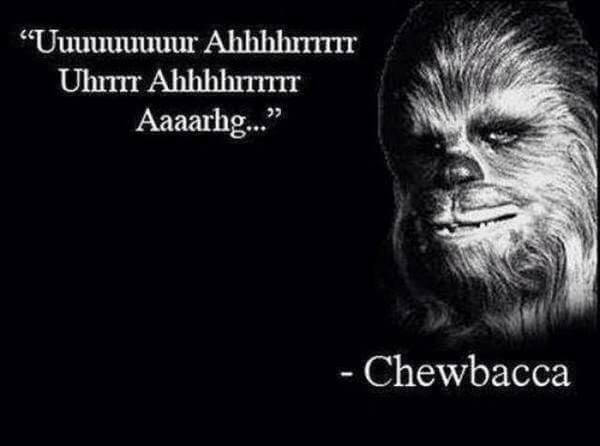Wookie Mistakes
I saw a post on The Ultimate 80s Page on Facebook which had the above picture of Chewbacca and it made me think of a recurring issue I come across when I carry out presentation skills training.
It is that sometimes people look like they want to get their presentation over with as soon as possible. They forget to take a second to breathe, or to pause in silence and think before moving on to the next point. This can result in them filling the gaps with non-word sounds like ‘ehm’ and ‘uhm’. Not only can this be distracting for your audience but it can also detract from the great content you have to share. Also, if you speak at 100 miles per hour you will run out of breath and lose vocal clarity.
If you think the above applies to you then I hope the following information is useful. In all of our training we focus on People, Preparation and Performance.
People
Firstly, when it comes to People, remember that when you are speaking at a conference or seminar that you are the expert. And the people in the room want to hear what you have to say. So this is your chance to make a difference. You are in control of the message you want to deliver.
It is perfectly normal to feel nervous before and during a presentation. So don’t think that you can’t do it. Even seasoned performing artists get butterflies before a performance. But it is important to know the difference between good stress and bad stress. Good stress can be motivating. Bad stress is the sort that wakens you at 3am. That can be harmful. Good preparation can help you overcome bad stress.
Butterflies before a performance can give you an edge. The adrenaline rush you feel is passed on to the audience as they see the energy in an enthusiastic performance. I am always suspicious of actors who tell me they feel nothing before they perform on stage or on camera. This can be a sign of complacency and can lead to a flat performance. The same rationale can be applied to any public performance.
So if you are feeling nerves before you present think of them as positive drivers. Use them to motivate you.
Preparation
As well as accepting that you are good enough to present in public, you can also deal with performance anxiety in the Preparation stage. Using some guided meditation before you go to bed the night before an important presentation or meeting can work well for some people. It may work for you too and help you get a sleep better. If you sleep well your brain will function better. On the day of a presentation a confidence building meditation session and a proper voice warm up in the half hour or so before you perform can also help. We can provide guided meditation recordings for clients if they feel they would benefit from this.
The voice warm up I use with my acting students and also in coaching sessions gets you breathing properly and warms up your face and voice. It also engages the brain. This combination helps performers to avoid tripping up over certain words are completely ready to step on to that stage.
Preparing your content and rehearsing it well can also help reduce performance anxiety and get you performing more fluently. Here is a rehearsal technique you can try.
Take a single page slide and limit the to 3 point section with a common theme. Practice out loud creating a mini script for each point. Through repetition you will start to find words and phrases that are natural to you. Keep repeating until you are happy with your words and you can deliver them without filling gaps with non-word sounds. Each time you make one of those sounds go back to the start and repeat the process. This may sound harsh but it will help you break a bad habit. When you can deliver all three points clearly without the extra sounds you don’t want you can then move on to slide 2.
Repeat this process for each slide. Consider that each of your three points on the side requires a change of thought. So for each change of thought try pausing and taking a proper breath. This will make it clear to your audience that you have moved on to another point. But it also gives them a few seconds to digest what you have said.
For good pace-setting practice your tempo by tapping it out with your foot as you rehearse. If you are unsure about what is a good tempo watch a BBC newsreader and tap along with their vocal delivery. Remember not to tap though during your public performance.
Performance
For your performance you should repeat what you have rehearsed.
If your body posture is good then you will find it easier to breathe. Relax your shoulders, stand with your feet shoulder-width apart and look straight ahead of you when you speak. And try to breathe from your diaphragm rather than your chest. Singers and actors do this and it helps you hold your breath for longer periods.
If you take time to breathe, you will pause at the right times and as a result your presentation will also breathe.
The Power of the Pause
Silence is Golden said the song. Short pauses are not the enemy. So embrace the power of the pause (or paws if you are Chewie-sorry!) if you don’t want to sound like our friend in the photo when delivering your speeches or short business pitches.
If you find this post useful it would be great if you could share it.
If you are a wookie speaker, I mean rookie 😉, or would like more information on the one to one or group training we provide please get in touch.
Steven McDonald
07855331141

